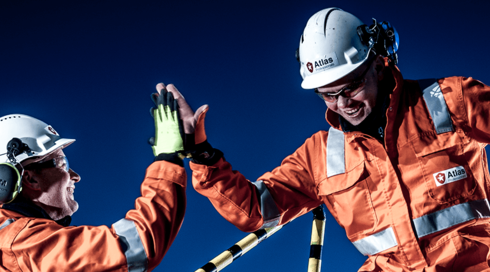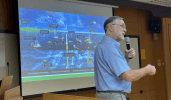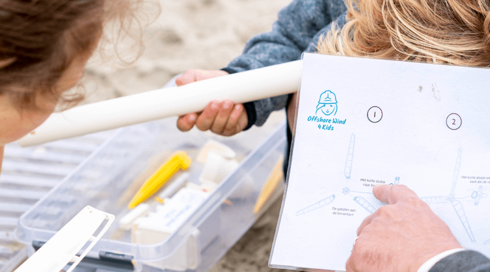2
Liz Burdock can recall a time when not many people talked about renewable energy in the United States. One person who did, however, was the then Vice President, Al Gore. “I remember him speaking about the harmful effects of climate change and how the planet was in peril,” she says. “I was a young mother back then and kept thinking: 'What kind of world am I going to leave my son?'”
Liz has since become a passionate advocate for renewables but, in those early days, often felt like a voice shouting in the wilderness. “Years ago, I went to one of the first cleantech venture capital forums in San Francisco, and there were just 30 people in the room,” she says. “So it's been amazing to see the shift in people's perceptions and attitudes since that time.”
In fact, renewable energy — and offshore wind in particular — has enjoyed huge growth in the US, with numerous offshore wind projects in development along the East Coast and a predicted $300 billion investment to the offshore sector, adding an approximate 10GW to the nation’s current wind energy capacity over the next 10 years. States such as Maryland, Massachusetts, New York, New Jersey and Virginia are ramping up their commitment to offshore wind; while Washington, California, New Mexico, Hawaii and Puerto Rico have promised to move to 100 per cent renewable energy — which, to stand any chance of success, will have to include offshore wind in their renewables mix.
Business voice
This is hugely promising news for the planet and for jobs, says Liz, who is co-founder, CEO and President of the Business Network for Offshore Wind, a US-based non-profit organisation dedicated to the development of the US offshore wind industry and the advancement of its supply chain. “Back in 2012 there wasn't a business voice presenting an economic argument for offshore wind,” she notes. “So we were created to be that voice. Our mission is to provide education about offshore wind and create partnerships between companies in the supply chain.”
The Network's membership consists of big and small business names. But whatever their size, getting them on side has been the key to unlocking public policy on renewable energy. “When businesses started buying into renewables because they realised it made economic sense for them, policy-makers suddenly began to hear what we had to say,” says Liz. “Those business voices made all the difference.”
Job creation
Liz has had fascinating career. Before joining the Network, she ran a White House programme on sustainability under the Clinton administration, and became a private lobbyist on Capitol Hill, to see how public policy could be used to create markets for clean energy technology. “I've always looked at renewables as a job creator,” she explains. “I love being able to do something that is good for the environment and individuals. Our members might be big or small, but they have a powerful message which is: 'Look: we really want this because it's about jobs, about putting food on our table and ensuring that my business is sustained over a long period time. Oh, and by the way, it makes a hell of a lot of sense for the environment.'”
Liz was introduced to Atlas Professionals in 2018. “I was blown away by their command of the workforce issues and skills needed in the offshore wind industry, and reached out to them to present at our International Offshore Wind Partnering Forum,” she says. “In the US, we're going to need a lot of workers and Atlas will be key to helping us get more people into the offshore wind sector. The industry has made lots of promises to government leaders that offshore will create jobs, so we're on the hook to make that happen.”
Renewables future
At the 2014 United Nations Climate Change Summit, former President Barack Obama noted: 'We are the first generation to feel the effect of climate change and the last generation who can do something about it.' Liz agrees entirely with that sentiment. “I just hope it's not too late,” she says. “The problem is that, for a long time, my generation had to fight against a tide of older people who wouldn't let change happen.”
Perhaps this is why she remains “cautiously optimistic” for the country's renewables future. “Right now, offshore wind is the hot topic in the US,” she says. “We have great developers in the industry with lots of expertise and financial backing; and there are a lot of states that want to implement it. And that's fabulous. But we're pushing out lots of projects and I don't want to see any of them fail. Because in these early days, we wouldn't want a pattern developing. There's too much at stake for our industry and our planet.”
.png)
.png)


